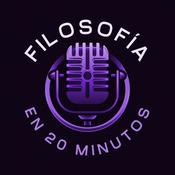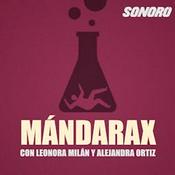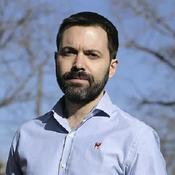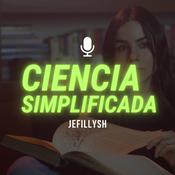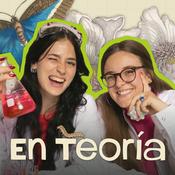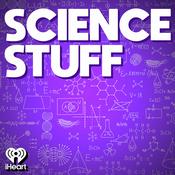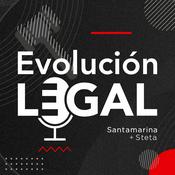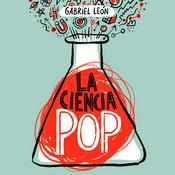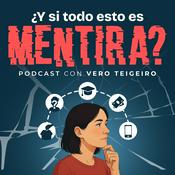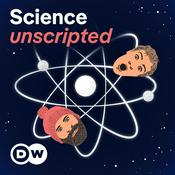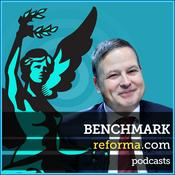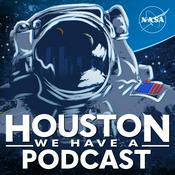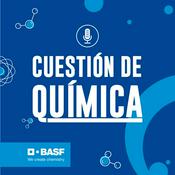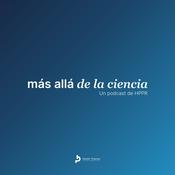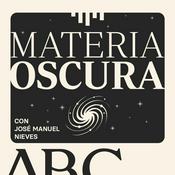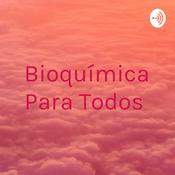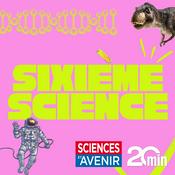224 episodios
EP 224: Genomic newborn screening in Australia: From pilot studies to population-scale programs with Zornitza Stark of the University of Melbourne
29/1/2026 | 44 minThis week on The Genetics Podcast, Patrick is joined by Zornitza Stark, Professor at the University of Melbourne and Co-Group Leader at the Murdoch Children’s Research Institute. Using early findings from the BabyScreen+ genomic newborn screening study, they examine feasibility, clinical impact, and family-wide implications beyond standard screening, and consider what these insights mean for infrastructure, policy, and equitable implementation at scale.
Show Notes:
0:00 Intro to The Genetics Podcast
01:00 Welcome to Zornitza
01:55 Methods and findings of the BabyScreen+ study
04:35 Scaling the BabyScreen+ study from pilot to population screening
07:46 Balancing benefits, risks, and downstream implications in genomic newborn screening
15:55 How the genes tested in BabyScreen+ were selected
19:00 Cascade testing and the family-wide implications of genomic newborn screening
22:05 What large-scale genomic newborn screening could reveal about penetrance
23:57 Expanding genomic newborn screening over time and addressing equity, scale, and long-term value
27:47 Rapid genomic sequencing in critically ill newborns from pilot studies to national implementation
34:32 Building evidence infrastructure to interpret variants and support reimbursement decisions
37:25 Why global data sharing in genomics requires policy alignment and sustained infrastructure investment
39:55 Current priorities and the future direction of genomics in Australia
42:14 Closing remarks
Find out more:
BabyScreen+ study
Please consider rating and reviewing us on your chosen podcast listening platform!EP 223: Live at JPM: Rewriting disease with next-generation genetic medicines with Michelle Werner of Alltrna and Mike Severino of Tessera Therapeutics
22/1/2026 | 49 minThis week on The Genetics Podcast, Patrick is joined for a special recording at the Flagship Pioneering studio during JPM 2026 by Michelle Werner, CEO of Alltrna, and Mike Severino, CEO of Tessera Therapeutics. They discuss the molecular mechanisms behind Alltrna’s engineered tRNA and Tessera’s gene-writing platforms, why 2026 marks a major inflection point as both programs enter the clinic, and considerations around trial design, patient needs, and delivering therapies at scale.
Show Notes:
0:00 Intro to The Genetics Podcast
00:59 Welcome to Michelle and Mike
01:26 Overview of Alltrna’s therapeutic approach to rare genetic diseases using engineered tRNAs
03:19 Overview of Tessera Therapeutics’ gene writing approach
04:51 Preclinical evidence supporting first-in-human testing of Alltrna’s lead candidate
07:50 Why Tessera’s preclinical models are predictive of clinical success
10:40 Key features that differentiate Tessera’s RNA-based gene writing
14:02 Advantages of using basket trials for engineered tRNAs
18:00 Clinical trial design and early efficacy signals for gene writing in alpha-1 antitrypsin deficiency
21:59 Genetic testing, patient identification, and patient advocacy in Alltrna trials
24:18 Differentiating Tessera’s gene writing approach for patients and investigators
26:35 Site readiness and expertise required for genetic medicine trials
28:32 Scaling Alltrna’s platform across mutations, tissues, and diseases
32:34 Expanding Tessera’s gene writing platform beyond alpha-1 antitrypsin deficiency
35:57 Perspectives on biotech funding, pharma partnerships, and rare disease investment
39:08 The data pharma looks for when partnering on novel genetic therapies
42:49 Emerging technologies Michelle and Mike are watching beyond their own platforms
47:19 Closing remarks
Find out more:
Alltrna (https://www.alltrna.com/)
Tessera Therapeutics (https://www.tesseratherapeutics.com/)
Please consider rating and reviewing us on your chosen podcast listening platform!
https://drive.google.com/file/d/1Bp2_wVNSzntTs_zuoizU8bX1dvao4jfj/view?usp=share_linkEP 222: From genetic risk to gene editing in heart failure with Travis Hinson of the Jackson Laboratory and University of Connecticut
15/1/2026 | 46 minThis week on The Genetics Podcast, Patrick is joined by Dr. Travis Hinson, Professor and physician at the University of Connecticut and investigator at the Jackson Laboratory. They discuss how genetics is reshaping the understanding of heart failure, why sarcomere biology has become a central target for new gene-based therapies, and how advances in genome editing and preventive genetics could redefine cardiovascular care.
Show Notes:
0:00 Intro to The Genetics Podcast
01:00 Welcome to Travis
01:44 Overview of gene editing for inherited cardiovascular disease
05:01 Delivery methods and viral capsid engineering to target heart tissue
07:29 Role of the titin gene in dilated cardiomyopathy and treatment opportunities
10:32 Genetic variants in titin and differences in phenotype
13:51 Promising therapeutic approaches for targeting titin
16:21 Possibility of using a mini titin gene for replacement
17:31 Sarcomere proteins and their role in cardiomyopathy
20:28 Limits of current understanding in heart failure, including cardiac regeneration and congenital heart disease
24:50 Predicting drug-induced cardiotoxicity using stem cell models, animal studies, and digital twins
30:02 How Travis balances clinical genetics at the University of Connecticut with translational research at the Jackson Laboratory (JAX)
32:03 Where genetic testing is used in cardiology today and what’s limiting broader access
35:19 Understanding polygenic risk and unexplained heritability in cardiovascular disease
37:07 Managing inherited cardiomyopathy risk in families after a pathogenic variant is identified
40:36 Genetic testing as a prevention strategy and the public health case for earlier intervention
43:03 Balancing early genetic screening with penetrance, uncertainty, and patient anxiety
45:51 Closing remarks
Find out more:
Review on cardiovascular gene editing approaches
Please consider rating and reviewing us on your chosen podcast listening platform!EP 221: How to build a woolly mammoth: Ancient DNA and de-extinction with Beth Shapiro of Colossal Biosciences
08/1/2026 | 50 minThis week on The Genetics Podcast, Patrick is joined by Dr. Beth Shapiro, Chief Science Officer at Colossal Biosciences. They discuss her path into ancient DNA and evolutionary genetics, how advances in genome engineering are reshaping de-extinction and conservation science, and why restoring lost ecological functions could transform the future of biodiversity.
Show Notes:
0:00 Intro to The Genetics Podcast
00:59 Welcome to Beth
01:43 Beth’s path from journalism to ancient DNA research
04:46 Beth’s first project on American bison and near extinction
08:26 How Beth worked on a dodo sample at Oxford and what ancient DNA could reveal
11:09 How de-extinction entered the field and why resurrecting species became a scientific goal
14:54 Why de-extinction efforts could strengthen ecosystems and accelerate species conservation
18:33 How cloning a mammoth works and why genome engineering replaces traditional cloning
25:05 Understanding the genome of a woolly mammoth
28:06 What functional de-extinction means in practice
30:55 Genetic clues behind the woolly mammoth’s coat
33:25 The technical hurdles behind de-extinction
38:23 Building a stepwise path to de-extinction through near-term conservation tools
39:36 Ethics risk management and working with local and Indigenous communities in de-extinction projects
44:59 Scientific and technological breakthroughs needed over the next decade to make de-extinction and biodiversity preservation viable
49:20 Closing remarks
Find out more:
Colossal Biosciences (https://colossal.com/)
Please consider rating and reviewing us on your chosen podcast listening platform!
https://drive.google.com/file/d/1Bp2_wVNSzntTs_zuoizU8bX1dvao4jfj/view?usp=share_linkEP 220: Turning human brain physiology into RNA medicines with Graham Dempsey of Quiver Bioscience
30/12/2025 | 43 minThis week on The Genetics Podcast, Patrick is joined by Dr. Graham Dempsey, CEO and co-founder of Quiver Bioscience. They discuss Graham’s path into neuroscience and biotech, how Quiver is building genetically validated programs in pain and neurodevelopmental disorders, and what recent advances in RNA-based therapies could mean for the future of neurological disease.
Show Notes:
0:00 Intro to The Genetics Podcast
00:59 Welcome to Graham
01:29 The motivations and mission driving Quiver Bioscience
04:34 Quiver’s approach to targeting the brain for neurological disease
06:58 Nav1.7 as a lead pain program and the mechanisms of pain signaling
12:11 Patient population and unmet need in chronic pain
13:37 The Dup15q neurodevelopmental program and recent clinical progress
17:29 How the company chooses which diseases to pursue and why genetically validated pain and epilepsy programs lead the pipeline
20:10 Modeling pain in a dish and how cellular electrophysiology reveals disease and drug effects
27:42 Lessons from building a biotech company
29:53 Today’s biotech climate and why Graham is optimistic
31:56 Emerging delivery technologies that could unlock the next wave of oligonucleotide therapies
33:51 How molecular shuttles cross the blood–brain barrier and the advantage of a dual target approach
37:05 Graham’s path from aspiring sports medicine doctor to building light-based platforms in neuroscience
40:15 Graham’s early exposure to biotech leadership and a formative encounter with Roy Vagelos
42:09 Closing remarks
Please consider rating and reviewing us on your chosen podcast listening platform!
Find out more:
Quiver Bioscience (https://www.quiverbioscience.com/)
Más podcasts de Ciencias
Podcasts a la moda de Ciencias
Acerca de The Genetics Podcast
Exploring all things genetics. Dr Patrick Short, University of Cambridge alumnus and CEO of Sano Genetics, analyses the science, interviews the experts, and discusses the latest findings and breakthroughs in genetic research. To find out more about Sano Genetics and its mission to accelerate the future of precision medicine visit: www.sanogenetics.com
Sitio web del podcastEscucha The Genetics Podcast, Filosofía en 20 minutos y muchos más podcasts de todo el mundo con la aplicación de radio.net
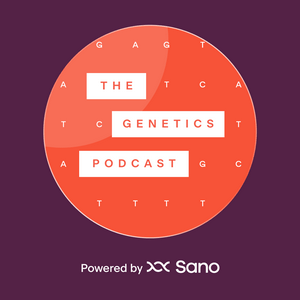
Descarga la app gratuita: radio.net
- Añadir radios y podcasts a favoritos
- Transmisión por Wi-Fi y Bluetooth
- Carplay & Android Auto compatible
- Muchas otras funciones de la app
Descarga la app gratuita: radio.net
- Añadir radios y podcasts a favoritos
- Transmisión por Wi-Fi y Bluetooth
- Carplay & Android Auto compatible
- Muchas otras funciones de la app


The Genetics Podcast
Escanea el código,
Descarga la app,
Escucha.
Descarga la app,
Escucha.

